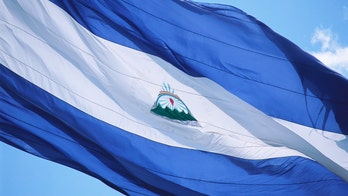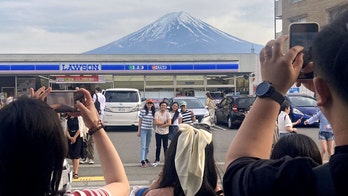El Salvadorian authorities have thwarted a plan to plant bombs nationwide on the eve of President Nayib Bukele's inauguration, implicating veterans of the country's civil war and a former leftist congressman.

San Salvador – The Salvadoran National Police have announced the successful disruption of a sinister plot to detonate bombs across the country, targeting critical infrastructure and government buildings in conjunction with President Nayib Bukele's impending inauguration on June 1, 2024.
The authorities revealed that the plot involved individuals with alleged affiliations to the Salvadoran Insurrection Brigade, a shadowy group with ties to former leftist guerrillas who fought in the country's brutal civil war from 1980 to 1992.

In a series of raids conducted by the National Police, including one in the former rebel stronghold of Guazapa outside San Salvador, explosive devices were seized. These included small cylinders of explosives with fuses and sacks of ammonium nitrate, indicative of the plot's deadly intentions.
Authorities have detained several suspects, including former congressman José Santos Melara of the leftist FMLN party, which was formed by former guerrillas. Melara is accused of financing the bomb plot. Other suspects were also apprehended.
The Block of Popular Resistance and Rebellion (BPR), a group of former FMLN members, condemned Melara's arrest as "arbitrary and politically motivated." They demanded his release and denounced Bukele as an "illegitimate president."
While authorities have praised the thwarting of the bomb plot, concerns have been raised over its potential implications for El Salvador's fragile democracy, which was restored following the civil war. President Bukele has faced criticism for his aggressive crackdown on gangs, which has resulted in the mass arrest of thousands of suspected gang members.
Critics argue that Bukele's actions, including his domination of Congress and his bid for a second term despite constitutional prohibitions on reelection, have undermined democratic institutions.
However, Bukele's popularity remains high among many Salvadorans due to his efforts to curb the violence perpetrated by street gangs, which once held sway over neighborhoods.
The thwarted bomb plot, while successfully averted, has cast a shadow over El Salvador's political landscape, raising questions about the future of democratic governance and the enduring legacy of the civil war. As President Bukele takes the oath of office, the country grapples with the challenges of balancing security concerns with the preservation of fundamental rights and freedoms.










